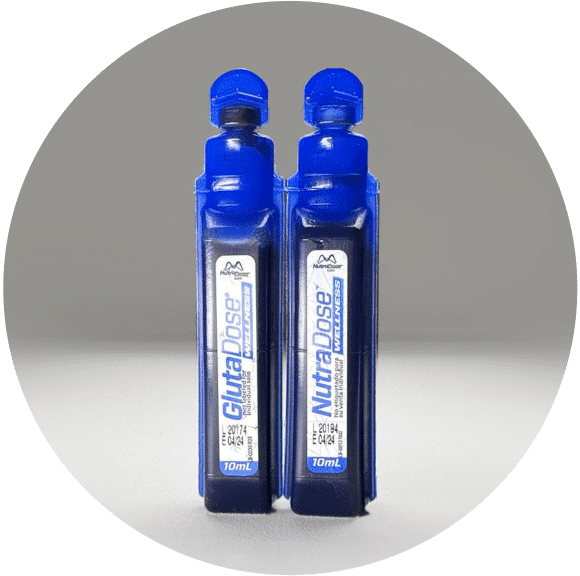“An imbalance in glutathione concentration or oxidation status has been linked to the development and progression of cardiovascular diseases. Many studies exhibit the effect of different proteins that modulate the role of glutathione in this kind of condition.”
Glutathione Participation in the Prevention of Cardiovascular Diseases. Antioxidants 2021, 10, 1220
If you’re serious about your health, it’s important to understand the real risks associated with cardiovascular disease. In today’s world, it is important to be aware of situations that may bring you dangerously close to certain conditions, making you susceptible to being among those who require special attention to prevent death.
In the United States, heart disease holds the unfortunate title of being the leading cause of death in various demographic groups. Regardless of gender or racial and ethnic background, its impact is widespread. To put it in perspective, cardiovascular disease claims a life every 34 seconds in the United States alone. Alarmingly, in 2020, approximately 697,000 people will lose their lives to heart disease, accounting for a staggering 1 in 5 deaths. The economic burden is equally staggering, with heart disease costing the nation a colossal $229 billion annually between 2017 and 2018. This includes spending on healthcare services, medications, and the significant loss of productivity due to premature mortality. Unfortunately, these numbers have yet to improve significantly.
Heart disease doesn’t happen suddenly. It often hides, waiting for certain risk factors to appear. High blood pressure, high blood cholesterol, and smoking are major factors that increase the chances of heart disease. However, they aren’t the only causes. Other conditions like diabetes, being overweight, an unhealthy diet, and a sedentary lifestyle can also raise the risk. Excessive alcohol consumption and substance abuse contribute as well.
It’s important to realize that all these factors are connected to each other and create a complex web of threats to our heart health. By understanding these risks and making informed choices, we can take proactive steps to protect our hearts and keep them strong.
There is scientific evidence that the loss of antioxidants, such as glutathione, as the primary in vivo and in situ defense mechanism against oxidative stress triggers a cascade of complex interactions involving multiple cell types and mediators.
This sequence culminates in the manifestation of airway reactivity and airflow limitation triggered by a combination of endogenous and exogenous reactive oxygen and nitrogen species. These harmful molecules are important players in the genesis of airway inflammation and serve as key determinants of asthma severity. In essence, it appears that the intricate interplay between the body’s antioxidant defenses, and the oxidative stress response plays a pivotal role in the pathogenesis of asthma.
Glutathione, especially in a liquid form for better absorption, may play a key role in the mission of modulating oxidative stress as a naturally occurring antioxidant that works to protect cells and tissues against the continuous production of reactive oxygen and reactive nitrogen species at the cellular level during normal metabolism.
Viewing asthma as a disease resulting from perturbations in redox signaling and control is a novel way to approach the unresolved questions surrounding the development and severity of asthma. This shift in perspective may provide valuable insights into asthma treatment.
Despite extensive research efforts, identifying the individual genes and proteins that underlie asthma susceptibility and severity remains a daunting task, and asthma remains a complex disorder, arguably a clinical syndrome.
Visit www.glutadose.com to learn more.

Evidence suggests that Glutathione (GSH) plays an important role in protecting against cardiovascular disease. GSH is an antioxidant molecule that helps protect cells from oxidative stress and inflammation. Both are key factors in the development and progression of these problems.
As cardiovascular diseases progress, they often give rise to a state known as oxidative stress, which can significantly impact the patient’s well-being. This state is characterized by the presence of reactive oxygen species (ROS) and reactive nitrogen species (RNS), which play a key role in the deterioration of the patient’s condition. These harmful molecules cause damages within the body, causing damage and interfering the normal cellular function. It is important to understand the role of oxidative stress in cardiovascular pathologies as it sheds light on the mechanisms underlying the disease.
Oxygen is vital for our existence, but its byproducts can sometimes lead to health issues. When reactive oxygen species (ROS) and free radicals (FR) are produced excessively and uncontrollably, they can harm the structure of our cells, including organelles and macromolecules. This phenomenon is known as oxidative stress, which happens when there is an imbalance between antioxidants and oxidants in our cells. As a result, the oxidants outnumber the antioxidants, causing cellular damage. It’s worth noting that oxidative stress is also associated with the aging process.
Glutathione (GSH) is a remarkable molecule that plays an active role in neutralizing the harmful effects of reactive species. As a tripeptide present in all tissues, it plays a crucial role in responding to increased levels of oxidizing agents. The synthesis and regeneration of glutathione are vital for maintaining a balance in the face of these agents. That’s why we will delve into the significance of glutathione in mitigating the detrimental effects of reactive oxygen species (ROS) in cardiovascular diseases. By understanding its role, we can explore ways to prevent or minimize the adverse impacts caused by oxidative stress.
In the intricate world of cellular processes, redox signaling events play a critical role in regulating pathways leading to cell death. Among these pathways, glutathione depletion is a notable early indicator of various cell death mechanisms. A breakthrough concept has emerged: a new form of cell death called ferroptosis, which is driven by oxidation and iron, in addition to the well-known modes of cell death such as apoptosis, necrosis, and autophagy.
Extensive research has demonstrated the undeniable link between glutathione synthesis, the enzyme GPX4, and the intricate process of ferroptosis. By unraveling these connections, we are gaining valuable insights into the fascinating world of cell death and potential avenues to fight it.





Delivered in 3-5
days for free

If you're not satisfied, request a full refund within 30 days.

Email us at [email protected],
we're here for you
*These statements have not been evaluated by the Food and Drug Administration.
This product is not intended to diagnose, treat, cure, or prevent any disease.
WARNINGS AND PRECAUTIONS:
Not recommended for use in pregnant or nursing women. Consult your doctor before using this product if you have or have had a medical condition, such as an autoimmune disorder; including multiple sclerosis, lupus, or rheumatoid arthritis; an organ transplant; acute infection; or if you
are taking any prescription medications, including immunosuppressive agents. If any adverse reaction occurs, discontinue use and consult your doctor.
Recommended: Discontinue product use one week prior to any surgical procedures.
Keep this product out of the reach of children. The information contained on Glutadose.com is provided for your general information only. Nutradose Labs LLC does not give medical advice or engage in the practice of medicine. If you are unsure of your condition please see a physician.
Individual results may vary.